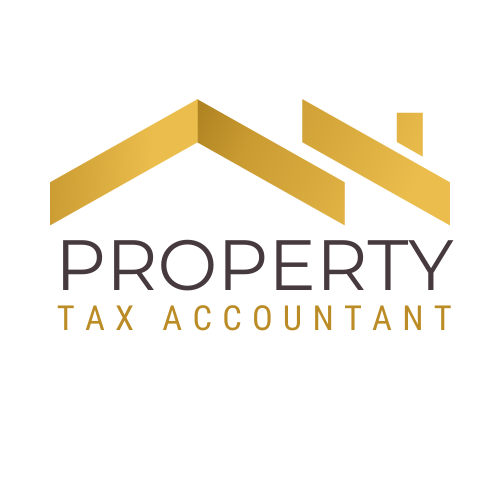You have to know the tax rules when it comes to commercial property!

Commercial Property Tax Benefits You Don’t Want To Miss!
That’s become the latest craze. There’s a reason for it. Investing in commercial property can offer strong returns. But it also brings different tax rules compared to residential properties. This guide covers the key tax areas that apply to commercial property: rental income, deductions, capital gains tax, and compliance. Understanding these can help investors reduce tax costs and stay compliant.
- Tax on Rental Income
Rental income from commercial property is taxable. This income must be declared on the investor’s tax return each year (“Australian Taxation Office”). To calculate taxable income, investors deduct allowable expenses from the rental income. Same as you would for residential ones. Up to a certain point. These expenses might include maintenance costs, property management fees, and loan interest. The expense profile is obviously different to residential ones. E.g. wear and tear in public spaces.
For example, if a commercial property earns $50,000 in rent and expenses total $15,000, the taxable rental income is $35,000. The investor pays tax on this amount based on their tax rate. Commercial properties are rarely negatively geared.
- Tax Deductions for Commercial Property That Good Accountants Will Unearth!
Commercial property owners can claim a range of tax deductions in Australia – with the help of the right accountant. These deductions lower the taxable income, which can lead to tax savings:
Interest on Loans: The interest on loans used to buy or improve a commercial property is deductible. But only the loan portion used for income-earning parts of the property can be claimed (Property Council of Australia).
Depreciation: Commercial property owners can claim depreciation, which covers both the building and its contents. There are two main types:
- Capital Works: Investors can claim a 2.5% deduction on the building cost each year for 40 years if the building was constructed after 1982 (“BMT Tax Depreciation”).
- Plant and Equipment: This applies to items like carpets, lights, and air conditioners. Items that are part of the building’s operations can be depreciated over time. There are now major changes in the tax legislation in this area though. Talk to your Quantity Surveyor or accountant.
Repairs and Maintenance: Repairs that keep the property in good condition can be deducted right away. Improvements, however, need to be depreciated over time. For example, fixing a door is a repair, but installing a new kitchen is an improvement (“Australian Taxation Office”).
Insurance Premiums: Insurance costs, including building and liability insurance, are deductible if they are related to generating rental income (Real Estate Institute of Australia).
Management Fees: Fees paid to manage a commercial property can also be claimed. These fees may cover tenant searches, rent collection, and maintenance tasks.
- Capital Gains Tax (CGT) for Commercial Property
When a commercial property is sold, any profit is subject to capital gains tax. The capital gain is the difference between the sale price and the property’s cost base, which includes purchase costs, improvements, and fees. Most people lose money here unnecessarily. They lose big because they did not get the right structure to begin with & missed out on asset protection too. But they also lose on the small items – because their record keeping was inaccurate. The small items add up too, because CGT is 50%.
CGT Discount: Commercial property investors who hold a property for more than a year can get a 50% CGT discount. This means they only pay tax on half of the gain. For example, if the gain is $200,000, only $100,000 would be taxed (BMT Tax Depreciation).
Small Business CGT Concessions: Some commercial property owners can qualify for additional CGT concessions. If they meet certain criteria, like asset value limits and active asset use, small business owners may qualify for more CGT relief (“Australian Taxation Office”).
Main Business Use Exemption: If the property was used as the main place of business, it may be exempt from CGT. However, certain rules apply, and professional advice is recommended (McGrath).
- Goods and Services Tax (GST) on Commercial Property
Unlike residential property, GST often applies to commercial property transactions. GST is charged on both the sale and lease of most commercial properties. If an investor is registered for GST, they may be able to claim GST credits on related costs.
GST on Sales: When selling commercial property, GST is usually added to the sale price. However, the GST Margin Scheme allows some sellers to calculate GST based only on the property’s profit margin. This can reduce the GST owed (Property Council of Australia). Interestingly, most miss out on this. And it’s consequential because it’s the difference between paying GST on profit v/s paying GST on the sales value. Most times people are missing out on hundreds of thousands of dollars here.
GST on Rent: If a commercial property is rented, the owner must charge GST on the rent to the tenant. This GST must be declared and paid as part of the owner’s regular Business Activity Statements (BAS). Most use a bookkeeper or accountant.
- Compliance and Record-Keeping
Good record-keeping is critical for commercial property investors. The ATO requires records to support all income, costs, and claims. Records must be kept for five years from the date of lodging the tax return.
Depreciation Schedule: A tax depreciation schedule helps commercial property owners claim all allowed deductions. This schedule, made by a quantity surveyor, lists each depreciable item and its effective life (“BMT Tax Depreciation”).
Records for GST and BAS: If an investor is registered for GST, they must submit BAS statements. These statements report GST on rents and other taxable sales. Keeping accurate records is essential to ensure correct reporting.
- Common Mistakes to Avoid
Investors often make errors when handling taxes on commercial property. Here are some common mistakes:
- Confusing GST with Income Tax: GST is different from income tax. Commercial property owners must pay GST on rent and sales but must report rental income separately on their tax return.
- Not Claiming Small Business CGT Concessions: Some owners overlook CGT relief available to small businesses. Checking eligibility can save on CGT.
- Mixing Up Repairs and Improvements: Repairs are claimed immediately. Improvements must be depreciated over time. Mistaking one for the other can lead to over-claiming deductions and ATO audits.
- Forgetting to Register for GST: GST registration is often required for commercial property rentals. Failing to register means the investor may not be able to claim GST credits.
- Seeking Professional Help
Commercial property tax can be complex. A tax advisor or accountant can help investors with GST registration, CGT calculations, and other issues. A quantity surveyor can create a depreciation schedule to maximize deductions. Professional help ensures investors follow the rules and save on taxes. If this is an area of interest for you, be proactive and look for advice very early in the piece. Later on, it will be just too late and you will have lost a lot of money unnecessarily.
Works Cited
Australian Taxation Office. “Rental Properties 2023.” Australian Taxation Office, 2023, www.ato.gov.au/General/Property/Rental-properties.
BMT Tax Depreciation. “Commercial Property Depreciation.” BMT Tax Depreciation, 2023, www.bmtqs.com.au/commercial-property-depreciation.
McGrath, John. “Capital Gains Tax (CGT) on Commercial Properties.” McGrath Estate Agents, 2023, www.mcgrath.com.au/advice/articles/capital-gains-tax.
Property Council of Australia. “GST and the Commercial Property Market.” Property Council of Australia, 2023, www.propertycouncil.com.au/advocacy/gst.
Real Estate Institute of Australia. “Deductions for Commercial Property Investors.” Real Estate Institute of Australia, 2023, www.reia.com.au/commercial-property-deductions/.
